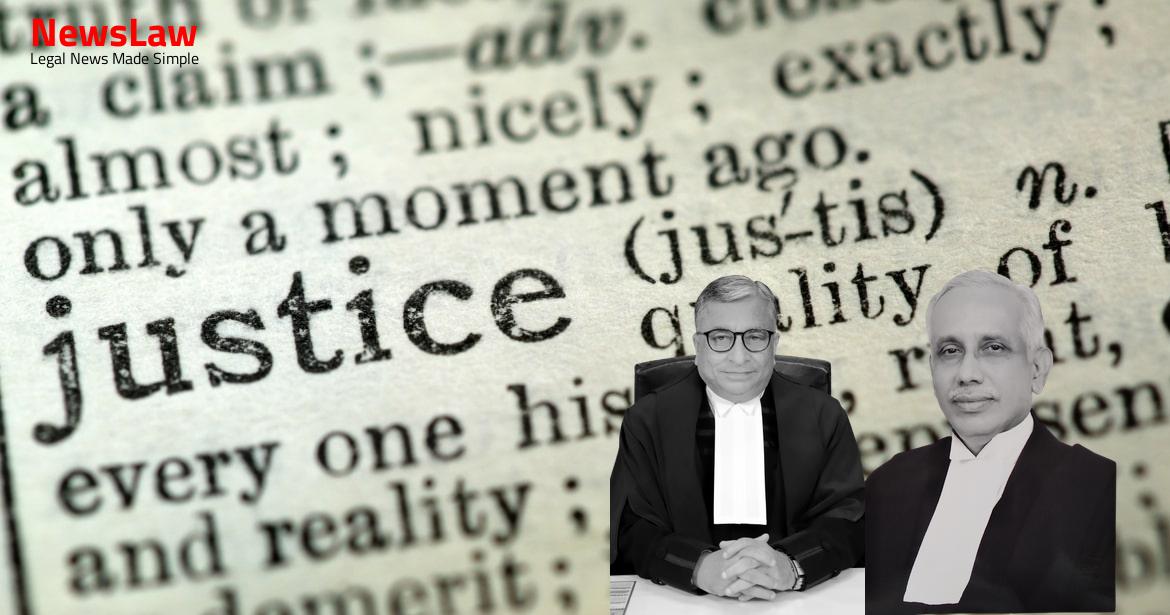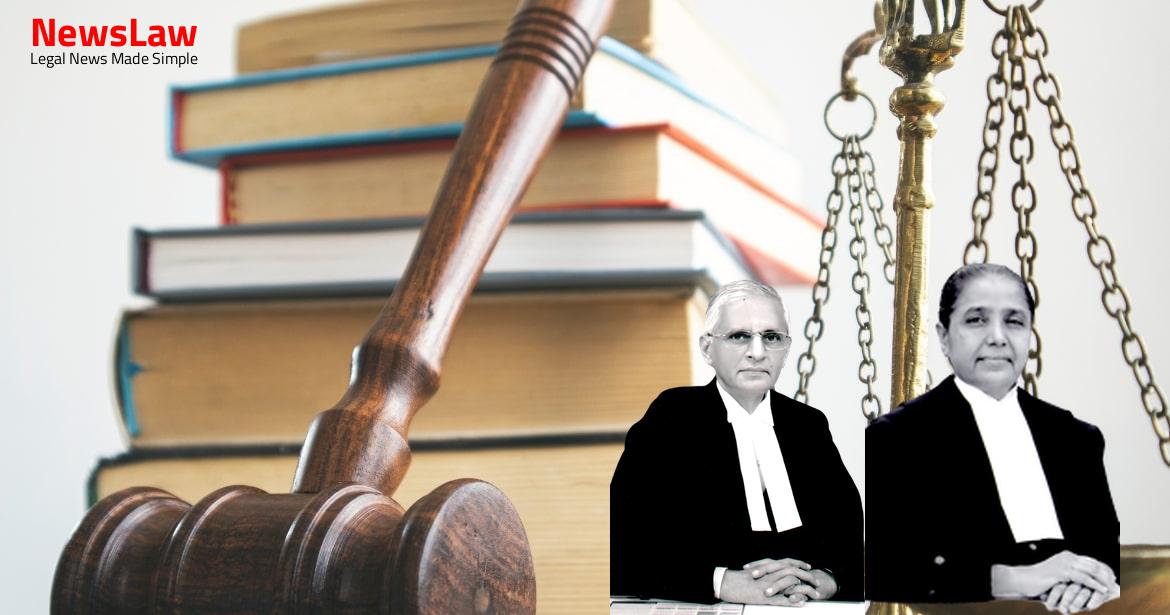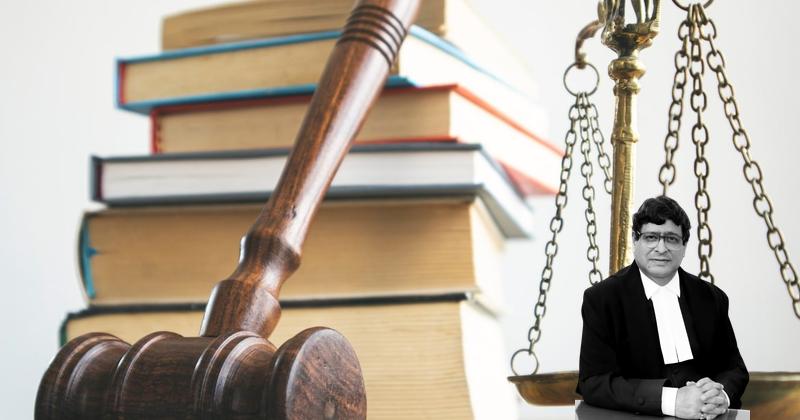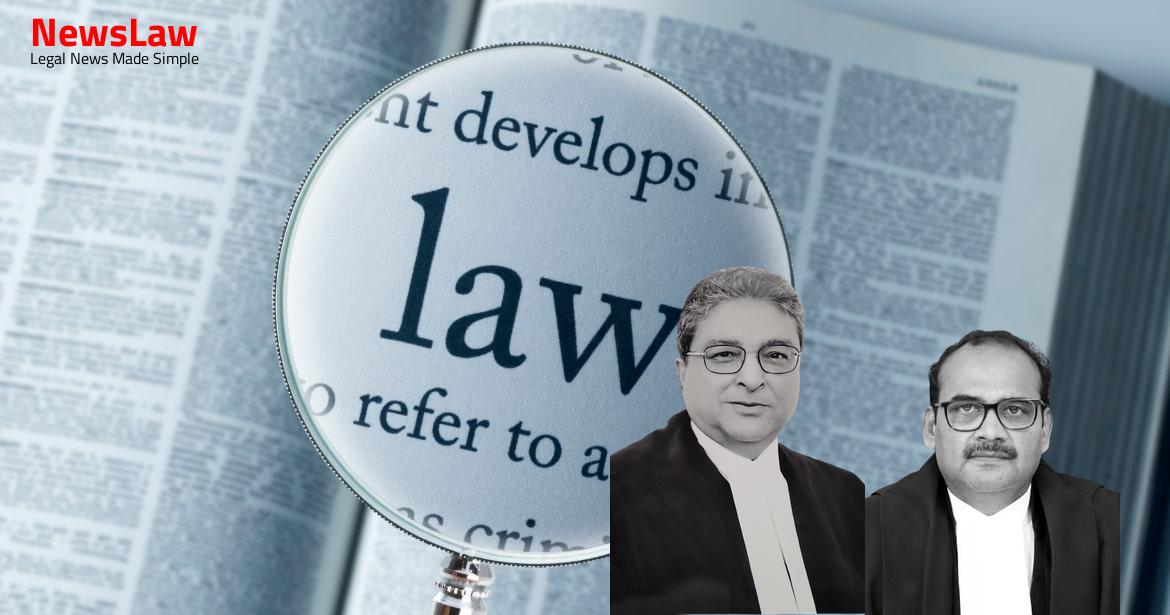Delve into the details of a crucial legal case where the High Court’s dismissal of a second appeal is being scrutinized. The focus is on the court’s legal analysis, specifically on the requirement to consider substantial questions of law and the necessity of providing reasons for the dismissal. Stay tuned to unravel the complexities of this significant legal decision.
Facts
- The plaintiff, Late Md. Mukim, who passed away during the trial, filed a suit against the defendant Hasmat Ali in Civil Suit No. 15 of 2009 seeking a declaration that the defendant was a tenant of the plaintiff till 31.03.2003 and eviction from the suit property.
- The suit was decreed in part on 21.07.2015, directing the defendant to vacate the suit shop.
- The defendant appealed the judgment, which was dismissed by the Appellate Court on 04.08.2017.
- The defendant then filed a regular second appeal before the High Court, which was also dismissed in limine, confirming the judgment of the lower courts.
Also Read: Land Sale Agreement Appeal: Legal Consideration of Additional Evidence
Arguments
- The appellant argues that the appeal raises substantial questions of law.
- He contends that the High Court should have considered these questions of law.
- It is submitted that the High Court erred in dismissing the appeal in limine.
- Learned counsel for the appellant asserts that the findings of the Trial Court and the First Appellate Court are legally flawed.
- The learned counsel representing the respondent has supported the High Court’s order.
- The key question at hand is whether the High Court’s dismissal of the second appeal under Section 100 of the CPC was justified.
Also Read: Legal Analysis in Compensation Appeal Case
Analysis
- High Court must formulate a substantial question of law and issue notice to the respondent before hearing an appeal under Section 100 of the CPC.
- Second Appeal can be filed against both concurrent and divergent findings of the lower courts.
- Second Appeal may be dismissed if no substantial question of law is found.
- Reasons for dismissing an appeal are necessary to help the appellant understand the decision.
- A higher court reviews a decision of a lower court in an appeal to rectify possible errors.
- The Court must demonstrate thoughtful consideration even when dismissing an appeal at the admission stage.
- High Court must provide reasons when dismissing an appeal that does not involve a substantial question of law.
- Challenges to High Court orders should be based on lack of reasoning.
- A second appeal can only be entertained by the High Court if it involves a substantial question of law.
- High Court should not dismiss a second appeal without reasons.
- The decision to entertain an appeal under Section 100 of the CPC is irrespective of whether it is against a concurrent or divergent finding.
- An appeal under Section 100 of the CPC must precisely state the substantial question of law involved.
- If the High Court is satisfied that a substantial question of law is involved, it shall formulate that question.
- The appeal will be heard only on the question formulated by the High Court, unless the Court decides to hear it on another substantial question of law.
- Rules 1 to 3 of Order XLII of the CPC govern the procedure for deciding a second appeal.
- At the time of making an order for the hearing of a second appeal, the Court must formulate the substantial question of law and may direct that the appeal be heard only on that question.
- The appellant cannot raise any other ground in the appeal without the Court’s permission.
- Order XLII of the CPC provides procedure for appeals from appellate decrees.
- Provisions of Order XLI apply to second appeals to a certain extent.
- High Court must follow the procedure of Order XLI to the extent possible when hearing a second appeal.
- Appellate jurisdiction can be exercised through writ of error, appeals, or other means of removal.
- Appellate jurisdiction revises and corrects proceedings in a cause already instituted.
- High Court must assign reasons for dismissing a second appeal without admission.
- Section 100 of CPC outlines the procedure for substantial question of law in second appeals.
- Framing of substantial question of law is mandatory under sub-section (4) of Section 100.
- High Court can decide a second appeal finally only after framing the question.
- High Court may dismiss appeal if no substantial question of law is involved after hearing the appellant.
Also Read: Disclosure of Material Facts in Legal Proceedings
Decision
- High Court did not assign reasons for dismissal of the appeal
- Order of High Court dated 31.07.2019 set aside
- Appeal succeeds and is allowed
- Matter remitted back to High Court for fresh disposal
- High Court required to assign reasons in support of its conclusion
Case Title: HASMAT ALI Vs. AMINA BIBI (2021 INSC 800)
Case Number: C.A. No.-007109-007109 / 2021



